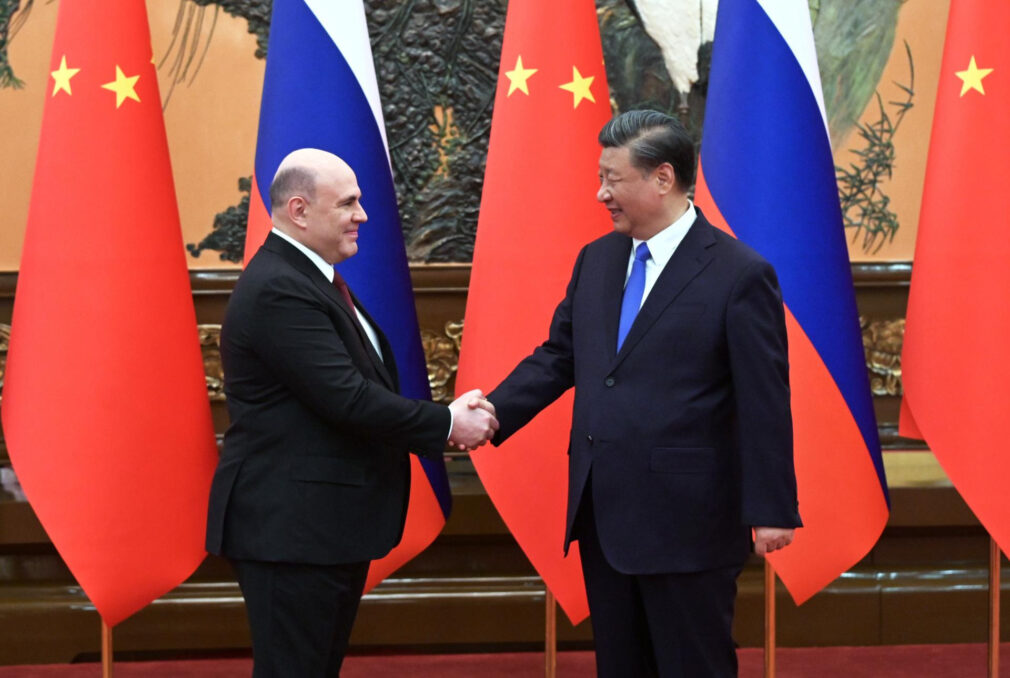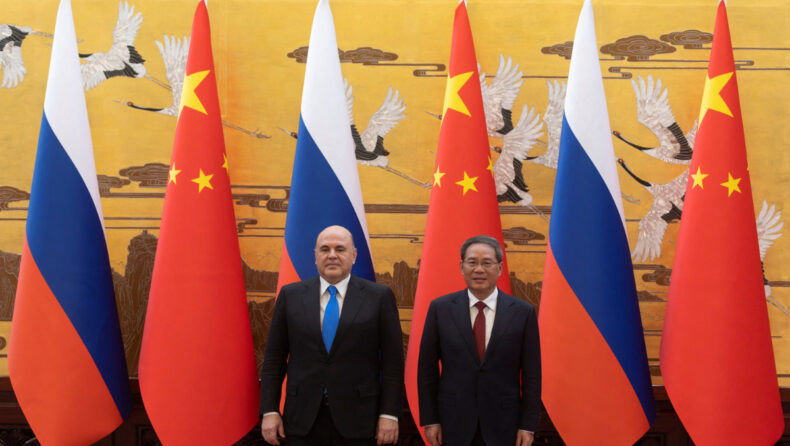
Russia’s Prime Minister, Mikhail Mishustin, on a visit to Beijing signed bilateral agreements to deepen economic ties between the two countries. They have agreed to promote agricultural exports, increase investment in trade services and boost sports cooperation.
“Today, relations between Russia and China are at an unprecedented high level,” Mishustin told Li in their meeting in Beijing.
“They are characterised by mutual respect of each other’s interests, the desire to jointly respond to challenges, which is associated with increased turbulence in the international arena and the pattern of sensational pressure from the collective West,” he said.
“As our Chinese friends say, unity makes it possible to move mountains.”
Xi Jinping, China’s premier visited Russia in march to extend support to his ‘dear friend’. Since the Russia Ukraine war, Mishustin is the highest ranking Russian official to visit Beijing. Though China claims to be a neutral mediator in war, it has often shown its biases towards Russia and has strengthened its ties since the start of the invasion.
G7 SUMMIT SANCTION ON RUSSIA
The recently concluded G7 summit in Hiroshima called on China and Russia to be more transparent about their nuclear arsenals. Mishustin’s visit was after the G7 summit. Russia’s deputy foreign minister criticising the statement remarked that the statement is designed to apply military and political pressure on China and Russia.
Beijing has rejected the attempts of western nations to link China with Russia. It affirmed that no international norms are violated by its relationship with Russia as every country is free to collaborate with the country of their choice as long as their cooperation is not targeting a third country.
SURGE IN BILATERAL TRADE BETWEEN RUSSIA AND CHINA
The bilateral trade between the countries has risen since the start of the invasion. After the recent agreement, the trade between them has surged to $200bn this year as compared to $190bn last year. as reported by Interfax, a Russian news agency, there is a rise of 40% in Russian energy shipments this year.
The custom’s authority in China has added Russia’s Vladivostok to its lists of transit ports marking it the first time Chinese have had access to Vladivostok since it was ceded by the Qing Dynasty 163 years ago.
Russia has relied immensely on China, since the start of the war, for political and economic support. Their ‘no limits’ friendship has intensified so much so that time and again China has blamed the Nato bloc for provoking the Ukraine conflict by expanding Nato’s members. China has warned against the extension of western alliance to Asia Pacific.
Xi also emphasised that the two countries should find ways to expand their collaborations with energy as a potential area to extend it.
Despite China’s vehement refusal to take Russia’s side in the war, the cooperation between the two countries is increasing day by day. Last week, Li Hui, China’s special representative for Eurasian affairs, visited Ukraine to promote peace talks. Li Hui is to visit Moscow on Friday.












